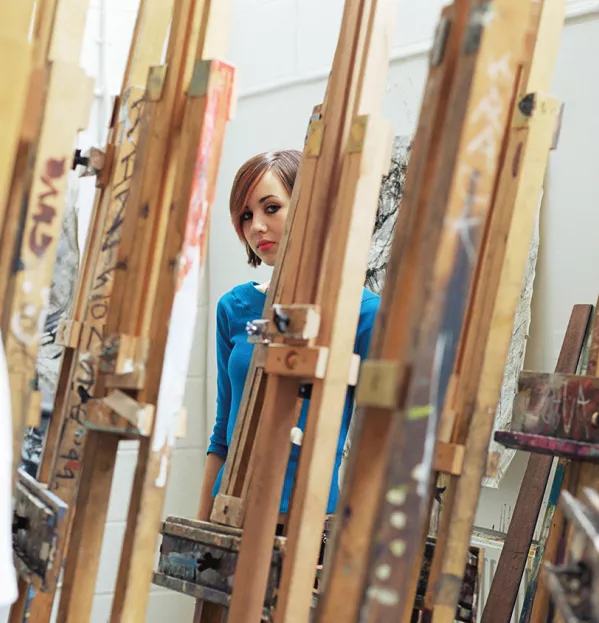Every school in the UK acknowledges the central importance of science, technology, maths and engineering (Stem) in the preparation of young people for the world of work. Increasingly squeezed and sidelined, however, are the arts.
Last year it emerged that the number of Scottish school pupils taking social sciences and the arts has fallen. This raises concerns about a narrowing curriculum - and as the curriculum contracts, so does the world that is accessible to our young people. At St Columba’s, a co-educational all-through school on the outskirts of Glasgow, we believe that schools neglect the arts at their peril.
In order to innovate, create something original, see how a space might be filled and succeed in the world, pupils must be encouraged to develop a sense of themselves. It is our job as educators to teach pupils how to trust and challenge their own ideas - and nurture their creativity and imagination.
It is essential that literacy and numeracy are mastered, which is why each young person at the school receives eight hours a week minimum of English and maths combined.
If we are blinkered in our approach, focus on science, technology, engineering and maths in isolation and neglect the “a” that makes the broader acronym of Steam, we limit children’s futures.
Multi-disciplinary learning
Those at the forefront of innovation, carving out new spaces in the world, combine arts and science. If we are to produce the next Vint Cerf - one of the “fathers of the internet” - or a supreme talent such as Leonardo da Vinci, we must embrace multi-disciplinary learning that champions the arts as much as it does the sciences.
One weekend in November, St Columba’s School welcomed award-winning graphic artist Metaphrog, who took a comic book workshop for 7- to 12-year-olds. In another area of the school, acclaimed fine artist Ian Murphy worked with teachers, inspiring them to “improve their visual language”. On the same day, two St Columba’s pupils were selected to represent Scotland in a team of five at the World Schools Debating Championships in Croatia next year. And on the Sunday, it was confirmed that - based on examination performance in 2017 - St Columba’s was among the highest-achieving schools in Scotland
Investment in the arts does not mean a reduction in A grades - quite the contrary. With the results we have achieved, it is difficult to argue that our approach is flawed.
It bears saying again: the arts are essential - they are not a luxury extra - and they should lie at the heart of children’s education.
Antonia Berry is depute rector at St Columba’s, an independent school in Kilmacolm, Inverclyde
